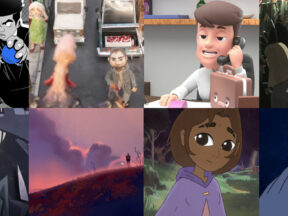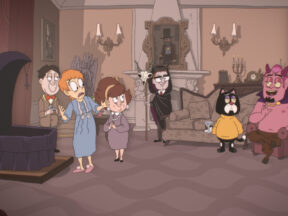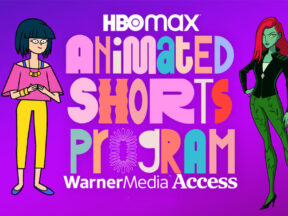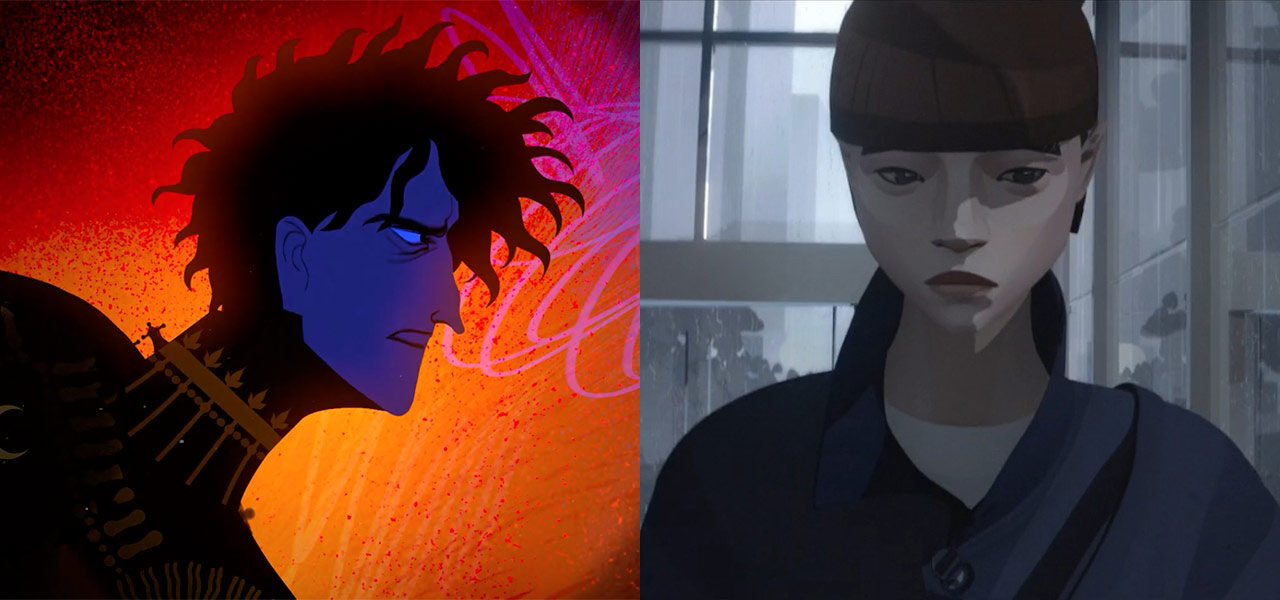
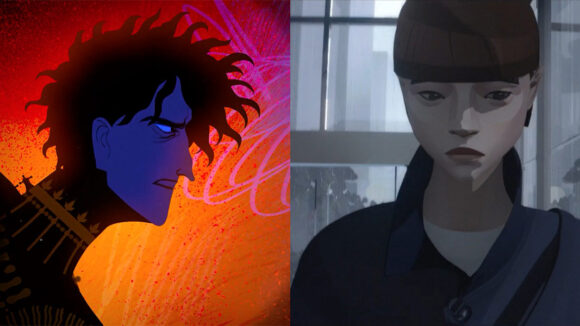
HBO Max’s Animated Shorts Program ‘Only You’ Through The Eyes Of Its Filmmaker Participants
Eight animated shorts produced as part of Warner Bros. Discovery’s HBO Max x Warnermedia Access Animated Shorts Program launch on HBO Max today.
For the occasion, we caught up with producer Amanda Miller and a few of the filmmakers behind some of the Only You shorts to get a better idea of how the program worked and to discuss their individual contributions.
Cartoon Brew: How involved were you and the other mentors/trainers in the production of these shorts? What was your role?
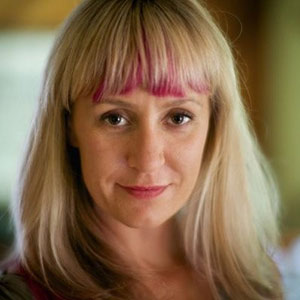
Amanda Miller: The mentors and I were intimately involved in the production of all eight shorts. During the scripting and boarding phase, we did a deep dive into the storytelling to make sure each short was as narratively clear as possible given the short run time that we had. That’s always a hard process because that is where creators need to let go of things; ideas you really want to hang on to but that don’t fit have to be sacrificed. It can be an emotional process.
Our HBO Max exec Aaron Davidson did an incredible job forming the mentor/mentee teams to make sure the films were being advised by people that were really excited by the creative. Having an executive be your champion is so valuable when you’re working through the creative process.
In terms of actual shot production, we had a wide variety of experience levels in the cohort. Some of the creators were more seasoned and they took on more (or all) of the shot production from soup to nuts, but some were very new to the animation process so I worked to find partners for them. We were very fortunate to have an incredible global community of artists that poured their energy into these films. And like any production, we would add or lose people as we worked through the phases of production. When we started the season, we set up weekly standing Zooms so that we had a predictable cadence for check-ins. Since we had all been remote for so long, it was already a familiar way to work.
What were the criteria that you had in mind when selecting the participants?
Miller: The prompt for the series was “What is a story that only you can tell.” We had an immense number of applications – roughly 1,100 – so there was a large haystack to pull the needles out of. When making the final selection we wanted to make sure we had a breadth of styles and tones within the program; a lot of personal stories can come from dramatic experiences but comedy was also important. And we’re really proud that each short has a unique visual style. Also, this program is meant to find up-and-comers who are ready to take the next step in their evolution as filmmakers, so we had to turn down James Cameron’s application.
Does the program end for the participants now that the shorts are done? Or is there more long-term that the Only You team can do for them?
Miller: The WBD Access team ensures their pipeline programs serve as the beginning – never the end – of their relationship with creators. The program was led internally by Vanessa Pfeiffer and her colleagues on the DEI [Discovery Equity & Inclusion] Access team. Working with Vanessa, I witnessed first-hand how intentional this team is about building community, supporting and challenging the creators to do their best work, and then – once the projects and program are complete – finding the best points of entry, connection and exposure for the talent – be it within the broader portfolio of brands under WBD – like Adult Swim, Cartoon Network, WBA [Warner Bros. Animation], WAG [Warner Animation Group], Rooster Teeth – or beyond. This level of exposure is game-changing for anybody working in this business, and especially those just starting out. Not only will their shorts live on a premium streamer like HBO Max and be screened at key festivals around the world, but they are now part of a larger network of people in the industry who know what they are capable of and are eager to work with them. I can’t think of a better launchpad for a career in animation.
What were the directions given to the filmmakers during development and production? Each looks about seven minutes long, was that a directive?
Miller: We had a budget and a calendar that we needed to adhere to which, to a certain degree, puts a fence around the length that you can achieve. Initially, we were telling people to aim for five minutes, but sometimes you need to go over that a little to tell the story you are trying to tell. Ultimately, it came down to how much we could squeeze out of the production resources. Creatively our intention was to let their voices and vision come through, so we took a relatively light but supportive approach to the creative development. And of course, we learned a lot this season that we will carry forward to make a second season more efficient.
Yellowbird
Directors: Jerred North, Tsvetelina Zdraveva
Studio: Afterman, Chaya Studios
Synopsis: While living in New York, a young immigrant receives tragic news from overseas and must choose between going home or staying in the U.S. to maintain her legal status.
Cartoon Brew: Your film’s autobiographical nature made it particularly impactful. I’ve been an immigrant for the last seven years and it really hit home with me, but I imagine it will also strike a chord with a lot of people who couldn’t travel during Covid lockdowns and missed important milestones.
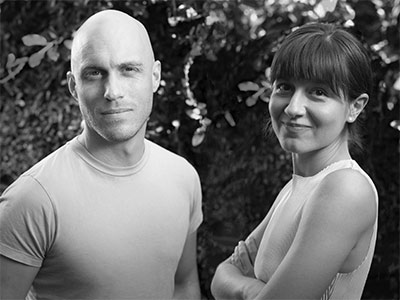
Jerred North and Tsvetelina Zdraveva: When we wrote the script we had thought the story might only be relevant to a small group of people. But we’ve been shocked at how many people have watched the movie and then told us their own, similar story. Especially during the Covid lockdown, the experience of not being able to say goodbye after losing someone you care about became a lot more common, even among people who are not immigrants. We’re so glad you liked the film. We actually heard about the “Only You” program because of Cartoon Brew – we check it religiously, up to 4-5 times a day. Even though we have been working on the project since 2018, it would not have been possible to finish without the support of the program. So thank you so much for what you do.
What were the visual influences you leaned on to find an appropriate aesthetic for this incredibly personal story?
North and Zdraveva: Our first big project as a directing team was a short film for NASA in 2016 that we pitched as a mixture of 3d props and characters with 2d textures and backgrounds. We learned a lot on that project and with more projects and experiences under our belt since then, we were excited to try it again.
We’ve been very inspired by the ways European animation in particular has been pushing the boundaries of how mature and beautiful animation can be. We love the work of Quentin Ballieux, Alberto Mielgo, Remi Chaye, and Julien Bisaro, among others. Their films helped us to see that Yellowbird could work as a stylistic animated short film and still be believable and feel real.
What was the production process like working with Warner Bros. Discovery? How involved were they, and in what ways did they aid you in making the film a reality?
North and Tsvetelina: Even though we have been working on this short since 2018, it would have been impossible to finish the film without the support of the program, which was conceived and created by Aaron Davidson and Vanessa Pfeiffer. From development, our mentor Susan Akinbola completely understood what we were hoping to do and helped us workshop scenes like a third writer.
Amanda Miller, our producer, helped us schedule and recruit artists we have admired from a distance for years and was a wonderful therapist in the dark moments when finishing the project seemed impossible.
It was also incredibly fun to be a part of a larger group of projects, that while all extremely different, were all made by the kindest and coolest people, all running the same gauntlet as us.
Aroon
Director: Miriam Presas
Studio: Salto Film
Synopsis: A deluded hero has trapped himself within a storybook legend where he always saves the day. After a harrowing experience, the hero starts to question his morality, his purpose, and what makes his life worth living.
Cartoon Brew: Can you talk a bit about the visual development of the look of Aroon? What influenced the film’s incredible character designs?
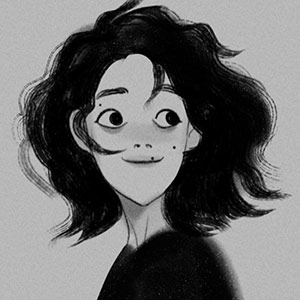
Miriam Presas: The start of the film is purposely very 2d and I tried to utilize visual sources that supported the narrative. So although the core visual reference was Indian shadow puppetry, I was also influenced by Lotte Reiniger as a way to successfully tell a story utilizing a limited range of visual dimension. The story also becomes a very overwhelming experience for the character, so when I came across backgrounds from Michel Ocelot’s films— they’re so incredibly intricate and very powerful, I immediately recognized the potential there. But overall, I wanted to build up a specific structure for the visuals, so when things for the protagonist mentally change later on, we can again mirror that visually, and it has all the more impact because of the work we put into establishing that earlier. So, finding ways to communicate was wonderful. And luckily, I got to be big part of it with my visual development background. Being able to personally paint so much of it gave me a very clear goal once I stepped into the role of production designer. It was so rewarding, and I think has become the real core of my approach to the way I want to show stories.
What was the production process like working with Warner Bros. Discovery? How involved were they, and in what ways did they aid you in making the film a reality?
Presas: I think I was really lucky to get to work with Warner Bros. Discovery. This was a big step into the industry for me so I had a lot of inexperience and could be pretty naive to the production structure. It stood out to me how much freedom they gave me to tell the story that I felt connected to. It was never about creating a story that has proven to be successful in the past, it was about being true to myself, which had a lot of value to me. Later, the people they connected me with, primarily Salto Film, gave me a lot of support and were very accommodating to how much I had to learn on the spot. That being said, this is also the first year the program has been running, so I think everybody who was a part of the program, including the cohort and the program managers, learned so much, and everyone is already prepared to be a part of making an even more successful experience for the next group of creators.
Pictured at top: Aroon, Yellowbird

.png)
